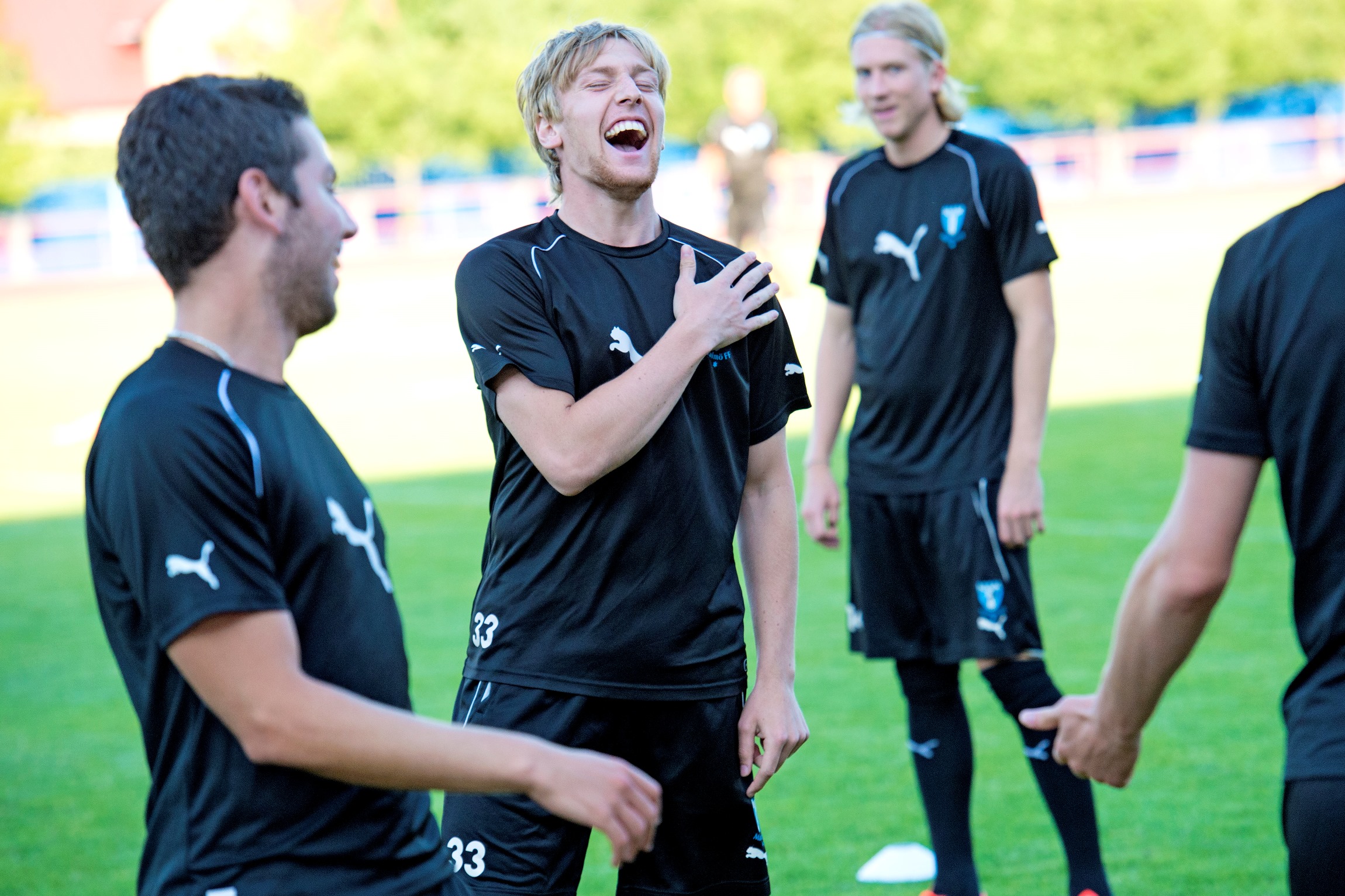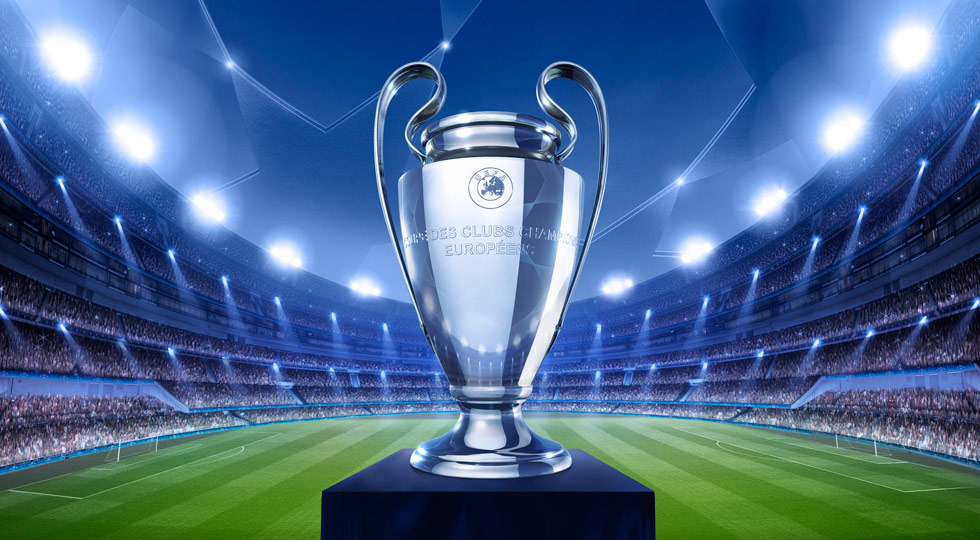Malmo sets course for European riches
Malmo FF has a plan for its time in the Champions League, and it might be surprising.
-
 Emil Forsberg entertains his teammates at practice July 21 as Malmö FF prepares for its Champions League clash with FC Ventspils in Latvia. Ludvig Thunman/Bildbyrån
Emil Forsberg entertains his teammates at practice July 21 as Malmö FF prepares for its Champions League clash with FC Ventspils in Latvia. Ludvig Thunman/Bildbyrån -
-
It would be easy for the head of a Swedish soccer club to watch with envy as teams from around reap the riches playing in UEFA-sponsored tournaments offers.
Easy, said Malmö general manager Niklas Carlnen, and wrong.
Carlnen and Malmö are in Riga, Latvia for the second leg of the Second Qualifying Round of the UEFA Champions League. At stake is a berth in the third round, and, if Malmö manages to advance, a spot in the playoffs. That is when the money begins to stream in as UEFA offers lucrative prize money to teams that win matches and continue to advance.
A trip to the finals next May is a guaranteed payday of $7.2 million. Win the final and it’s a cool $11.6 million and that is the cherry on the cake. Each stage of the competition has its own payout. Last season, Italian club Juventus, which lost in the quarterfinals, still managed to bank more than $65 million in prize and TV money.
It is the type of money about which Swedish clubs can only dream as getting to the point where a club begins earning money isn’t easy.
UEFA ranks the Allsvenskan 23rd out of 54 European leagues. Malmö, as Swedish champion, enters the competition in the Second Qualifying Round. Six teams – from the lowest-ranked leagues – play in the First Qualifying Round. The three winners then join the 31 teams, such as Malmö, that automatically begin in the second round. Each series is home-and-home. The 17 winners in the second round move on to the third round, where another 10 teams, the runners-up of nine leagues, including those in Russia, Ukraine, Denmark, Greece, Turkey and Switzerland, join the fray along with the third-place team from France. The winners in the third round move onto the Playoff Round, where fourth-place teams from the English, German and Spanish leagues, as well the third-place teams from Portugal and Italy enter the field.
The teams that survive the playoffs reach the Group Stage, into which the winners of top 13-ranked leagues, runners-up from top-seven league and third-place teams from the top-three leagues all enter the competition. -
 A trip to the Champion League finals next May is a guaranteed payday of $7.2 million.
A trip to the Champion League finals next May is a guaranteed payday of $7.2 million. -
-
'In football, anything can happen'
It is a tall order for a club such as Malmö, whose annual budget would not cover the pay of football’s newest star, Colombian midfielder James Rodriguez, who signed a six-year, $108 million deal with Barcelona.
“If you analyze it or think about future rounds, yes, it looks very difficult,” said Carlnen in a telephone interview from Latvia.
“What we are trying to do here at Malmö is build our club,” Carlnen said. “If we don’t succeed this year, we will succeed next year. In football, anything can happen, so you should be prepared for the best and the worst.”
Carlnen said the trick to getting through the various rounds was to not worry about which big-name club would enter the competition.
“As they say, we have to take it one game at a time,” Carlnen said. “Anything can happen.”
If Malmö reached the playoff stage, it will garner $2.8 million – about 20 million kronor. If it reaches the group stage, the club is guaranteed nearly $11.5 million. It is the kind of money that could make heads spin and fans dream of landing big-name stars. Carlnen, however, dismissed those notions.
“We don’t gamble with our money,” he said. “We don’t want to spend it before we have it. We have a very stable budget right now at Malmö. We own our own stadium, which is unique in Sweden. We are able to pay our bills from our income from the stadium, from the spectators – and our season tickets are about the same as last year – and from other income. Any money we make in Europe we invest in the club by putting it into the academy so we can develop new players or into the stadium. We don’t spend what we don’t have.”
Although he dismissed the idea of Malmö suddenly competing with the likes of Barcelona or Manchester United for players, Carlnen said continued success could only help the future of the club.
“I think many clubs look at what Rosenborg accomplished and want to do the same, but it is very difficult. It means you have to win the league every year,” he said.
Norwegian side Rosenborg rose to prominence in the early 2000s as it used its success in the Champions League to fund its dominance of the Norwegian Tippeligan. The domestic success, in turn, ensured Rosenborg’s return to the Champions League.
“Of course, that’s what we would like to do in Malmö,” said Carlnen, “but there are many factors that keep Swedish clubs from achieving the success of Rosenborg.” -
 It is a tall order for a club such as Malmö, whose annual budget would not cover the pay of football’s newest star, Colombian midfielder James Rodriguez, who signed a six-year, $108 million deal with Barcelona. But ... “If we don’t succeed this year, we will succeed next year. In football, anything can happen, so you should be prepared for the best and the worst.”
It is a tall order for a club such as Malmö, whose annual budget would not cover the pay of football’s newest star, Colombian midfielder James Rodriguez, who signed a six-year, $108 million deal with Barcelona. But ... “If we don’t succeed this year, we will succeed next year. In football, anything can happen, so you should be prepared for the best and the worst.” -
Swedish System hampers competition
Carlnen said one of the more basic hurdles Swedish clubs face is simply keeping their rosters intact.
“It is because of our season. We only have one transfer window (in which to get new players) in the summer,” he said. “Because we play a spring-to-fall schedule, we can lose players over the winter and don’t have the chance to replace them. I think we need to adopt the same schedule as the rest of Europe so we can compete with European clubs.”
He also blamed the Swedish system of ensuring equality among clubs for preventing sides such as Malmö to put distance between itself and smaller-market, less-talented clubs.
“In Sweden everything is supposed to be equal and I think that is a problem in sports,” Carlnen said. “Every team receives an equal share (of league revenue) and that limits what bigger clubs can do. I think we need to adopt a system more like Holland, where they use an average and divide the revenue based on performance.”
As Malmö prepared for its July 23 tilt in Latvia, it faced a tough task. Malmö played to a scoreless draw in the home leg at Swedbank Stadium and now must win on the road. The defending Swedish champions also hold a nine-point lead over AIK in the Allsvenskan. If Malmö defends its 2013 title, it would be the first team to repeat as champions since Djurgården in 2002-2003. Carlnen said accomplishing that feat was just as important as advancing in Europe.
“We want to reach the playoff round but I think our focus must be on the domestic league,” he said. “If we come in first, second, or third, it guarantees that we will play in Europe. Of course, we want to win the league so we can return to the Champions League.” -
-
